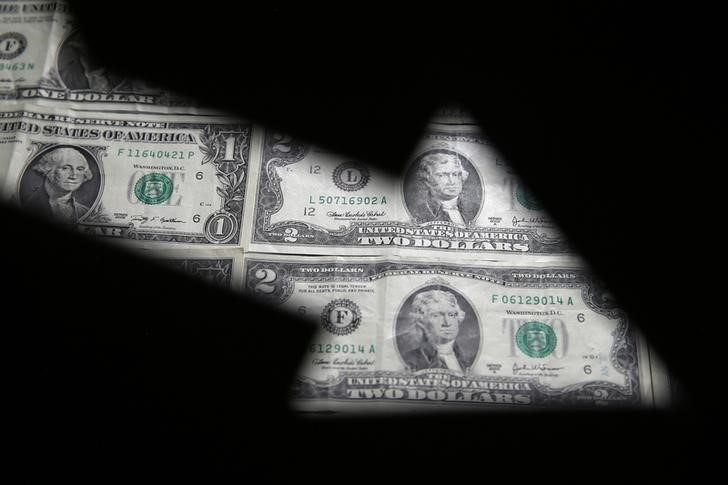By Stanley White
TOKYO (Reuters) - The dollar held on to its gains versus the yen and the Swiss franc on Friday as a China-U.S. agreement to roll back tariffs on each others' goods supported riskier assets, even as some reports suggest a preliminary trade pact is far from a done deal.
The yen also nursed losses against the euro and the Australian dollar as progress in resolving a 16-month long trade war between the world's two largest economies weakened demand for safe havens.
China and the United States have agreed to roll back tariffs on each others' goods in a "phase one" trade deal if it is completed, officials from both sides said on Thursday.
However, there is still some scepticism about a trade deal as officials inside and outside the White House have bristled at the notion of giving up punitive tariffs.
Muddying the water further, White House spokeswoman Stephanie Grisham told Fox News Channel in an interview on Thursday that the United States is "very, very optimistic" about reaching a trade deal with China soon.
Sterling traded near a two-week low after two Bank of England unexpectedly voted to cut interest rates due to uncertainties posed by Britain's fraught exit from the European Union.
The remaining seven policy makers on the board voted to keep policy unchanged, but Governor Mark Carney and others said they would consider a cut in the future.
On the whole, sentiment is likely to remain supportive for the dollar, equities and other risky assets as a de-escalation in the U.S.-China trade war removes a huge risk to the global economic outlook.
The dollar index (DXY) against a basket of six major currencies stood at 98.136, up 1% this week.
"The overall tone is risk-on, which is a positive for the dollar and a negative for the yen," said Tsutomu Soma, general manager of fixed income business solutions at SBI Securities Co in Tokyo.
"We can see this in other markets, which is why stocks are so strong. We still need to figure out when the United States and China will sign this deal, but the mood so far is supportive for markets."
Trump has used tariffs on billions of dollars of Chinese goods as his primary weapon in a trade war that has hurt global growth and rattled financial markets in the past year.
The dollar held steady at 109.34 yen in Asia on Friday, close to a five-month high, and is headed for a 1.1% gain for the week.
The greenback edged higher to 0.9953 Swiss franc, on course for a 1% gain.
The pound traded a $1.2815, close to the lowest since Oct. 24. Cable was on course for a 1% decline this week.
Economists polled by Reuters had expected the BoE to vote unanimously to keep Bank Rate at 0.75%.
The announcement of the 7-2 split weighed on sterling as market odds on a cut next year rose as high as 80%.
To date, the BoE has resisted following the U.S. Federal Reserve and the European Central Bank in cutting its main interest rate, but the outcome of Thursday's meeting suggests the BoE is poised to change its stance on monetary policy.
